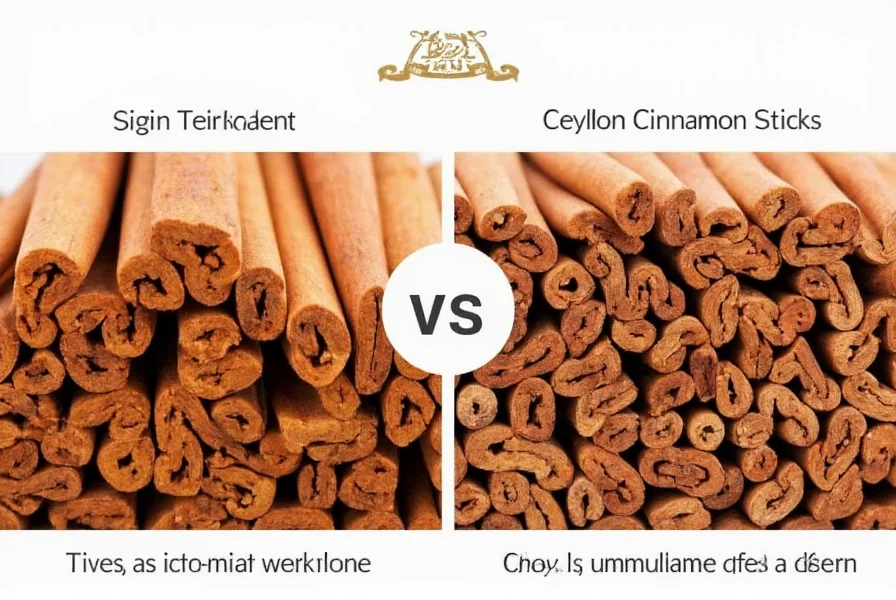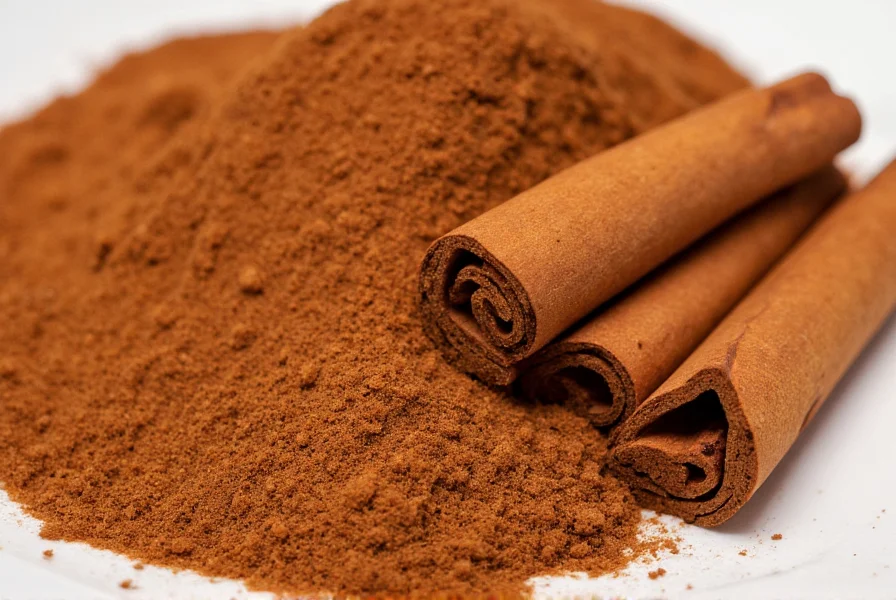Yes, Saigon cinnamon (Cinnamomum loureiroi) offers notable health benefits including blood sugar regulation and antioxidant properties, but its high coumarin content requires moderate consumption. Unlike Ceylon cinnamon, Saigon cinnamon contains significantly more coumarin, which can cause liver damage in excessive amounts. For most adults, limiting intake to 1 teaspoon (about 2.5 grams) daily provides benefits while minimizing risks.
When evaluating whether is Saigon cinnamon healthy, it's essential to understand both its impressive therapeutic properties and important consumption considerations. This Vietnamese variety, often labeled as "cassia" in stores, delivers potent health advantages but requires mindful usage due to its chemical composition. Recent nutritional research confirms Saigon cinnamon's effectiveness for blood glucose management, making it particularly valuable for prediabetic individuals, while simultaneously highlighting why daily intake limits matter for long-term safety.
What Exactly Is Saigon Cinnamon?
Saigon cinnamon, botanically classified as Cinnamomum loureiroi, originates from Vietnam's central regions and represents a specific variety within the broader cassia cinnamon family. Distinguished by its intense aroma and robust flavor profile, this type contains higher concentrations of cinnamaldehyde (the compound responsible for cinnamon's characteristic taste) compared to other cinnamon varieties. Its deep reddish-brown color and thick, tightly-rolled quills make it visually distinctive in spice markets worldwide.

Nutritional Composition and Active Compounds
The health properties of Saigon cinnamon stem primarily from its rich phytochemical profile. Key components include:
| Compound | Concentration in Saigon Cinnamon | Primary Health Effects |
|---|---|---|
| Cinnamaldehyde | Approximately 25% | Anti-inflammatory, antimicrobial properties |
| Coumarin | 1-6% (significantly higher than Ceylon) | Potential liver toxicity in high doses |
| Polyphenols | High concentration | Powerful antioxidant effects |
| Manganese | Excellent source | Bone health, metabolism support |
Evidence-Based Health Benefits of Saigon Cinnamon
Multiple clinical studies validate specific health advantages associated with moderate Saigon cinnamon consumption:
Blood Sugar Regulation
Research published in the Journal of the Academy of Nutrition and Dietetics demonstrated that 1-3 grams of Saigon cinnamon daily significantly improved fasting blood glucose levels in prediabetic participants. The spice enhances insulin sensitivity by mimicking insulin activity and increasing glucose uptake by cells—a valuable property when considering is Vietnamese cinnamon good for you from a metabolic perspective.
Antioxidant Powerhouse
With an ORAC (Oxygen Radical Absorbance Capacity) value exceeding 250,000 μmol TE/100g, Saigon cinnamon ranks among nature's most potent antioxidant sources. These compounds combat oxidative stress, potentially reducing inflammation markers associated with chronic diseases. This antioxidant capacity directly addresses the question saigon cinnamon health benefits and risks by demonstrating clear protective mechanisms.
Antimicrobial Properties
The high cinnamaldehyde content provides natural defense against various pathogens. Laboratory studies show Saigon cinnamon extract effectively inhibits growth of foodborne bacteria including E. coli and Salmonella, supporting traditional uses for food preservation and digestive health.
Important Health Considerations and Risks
Understanding saigon cinnamon coumarin content health effects is crucial for safe consumption. Coumarin, while possessing some therapeutic properties, becomes problematic at higher doses:
- The European Food Safety Authority recommends maximum daily coumarin intake of 0.1 mg per kilogram of body weight
- Saigon cinnamon contains 1-6% coumarin by weight, meaning just one teaspoon (2.5g) may contain 25-150mg of coumarin
- Individuals with pre-existing liver conditions should exercise particular caution
- Long-term excessive consumption may lead to hepatotoxicity
Saigon vs. Ceylon Cinnamon: Making the Right Choice
When determining is saigon cinnamon healthy compared to regular cinnamon, understanding the differences between major cinnamon varieties proves essential:
| Characteristic | Saigon (Cassia) Cinnamon | Ceylon Cinnamon |
|---|---|---|
| Scientific Name | Cinnamomum loureiroi | Cinnamomum verum |
| Coumarin Content | 1,000-6,000 mg/kg | 40-130 mg/kg |
| Flavor Profile | Intense, spicy, robust | Milder, sweeter, more delicate |
| Price Point | More affordable | Significantly more expensive |
| Recommended Daily Limit | 1 teaspoon (2.5g) | Up to 2.5 teaspoons (6g) |
For therapeutic applications requiring higher doses, Ceylon cinnamon represents a safer option due to its dramatically lower coumarin levels. However, Saigon cinnamon's stronger flavor means you often need less to achieve the same taste impact, potentially balancing the coumarin exposure.
Practical Usage Guidelines: How Much Is Safe?
Addressing how much saigon cinnamon is safe to consume daily requires personalized consideration:
- General population: Up to 1 teaspoon (2.5 grams) daily provides benefits while staying within safe coumarin limits
- Individuals with liver conditions: Consult physician before regular consumption
- Therapeutic use for blood sugar management: 1-3 grams daily for limited durations (8-12 weeks), followed by break periods
- Children: Maximum 1/4 to 1/2 teaspoon daily depending on age and weight
Consider rotating between Saigon and Ceylon cinnamon to enjoy flavor variety while managing coumarin exposure. When baking or cooking, remember that Saigon cinnamon's stronger flavor often means you can use less than recipes specify.
Incorporating Saigon Cinnamon Into Your Diet Safely
Maximize the health benefits of Saigon cinnamon while minimizing risks through these practical strategies:
- Add 1/2 teaspoon to morning coffee or tea instead of sugar
- Use in moderation when preparing oatmeal or smoothies
- Combine with black pepper to enhance absorption of beneficial compounds
- Pair with healthy fats like coconut oil or almond butter to improve bioavailability
- Avoid using as primary ingredient in daily supplements without medical consultation
For those specifically investigating saigon cinnamon blood sugar benefits, consistency matters more than quantity. Daily consumption of smaller amounts (1/2 to 1 teaspoon) proves more effective for glucose regulation than occasional larger doses.
Final Assessment: Is Saigon Cinnamon Healthy?
The question is Saigon cinnamon healthy receives a qualified "yes" with important caveats. This potent spice delivers scientifically validated health benefits, particularly for metabolic health and antioxidant protection. However, its high coumarin content necessitates mindful consumption patterns. When used appropriately—staying within recommended daily limits—Saigon cinnamon represents a valuable dietary addition rather than a health risk. The key lies in understanding that "healthy" depends on context: moderate use provides benefits, while excessive consumption introduces potential risks.











 浙公网安备
33010002000092号
浙公网安备
33010002000092号 浙B2-20120091-4
浙B2-20120091-4